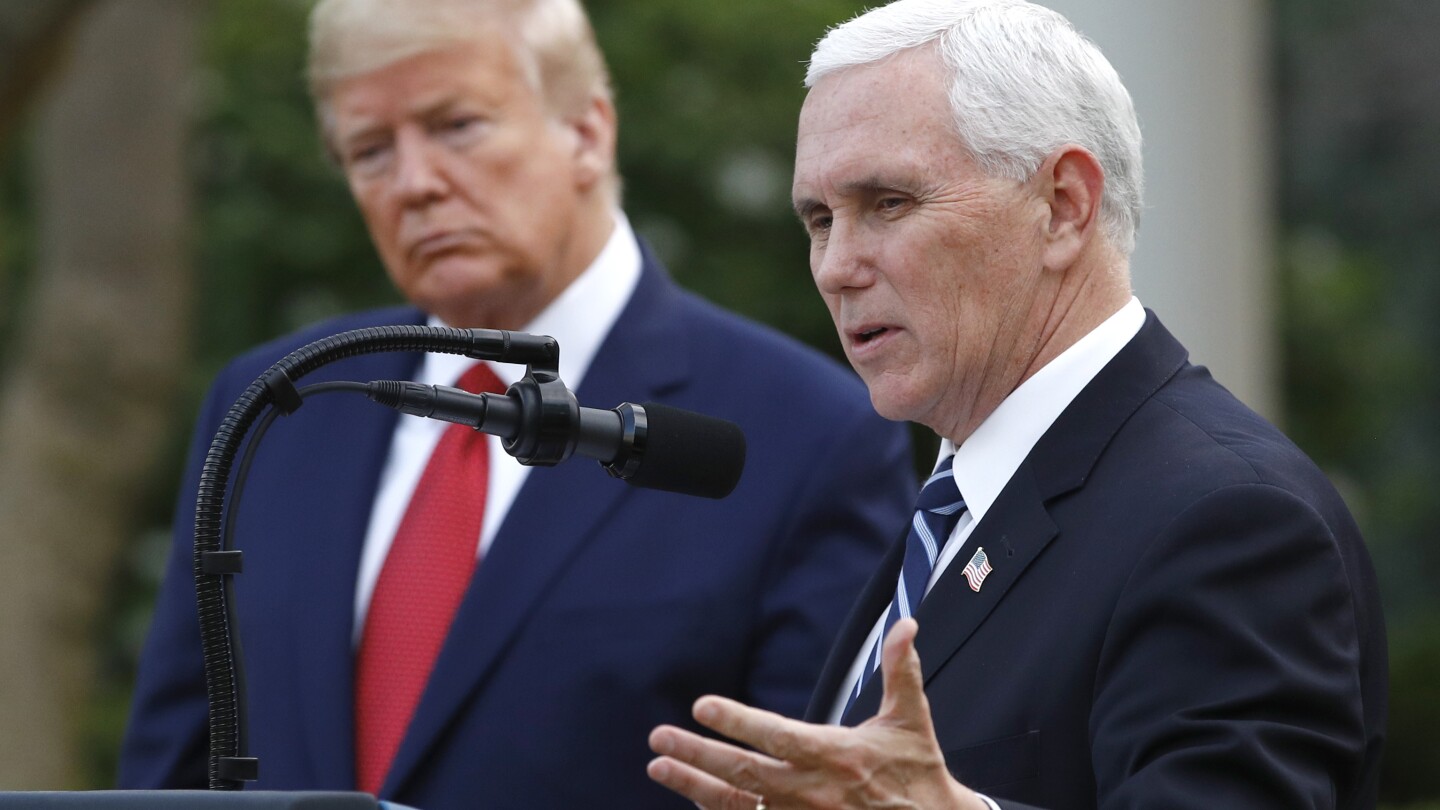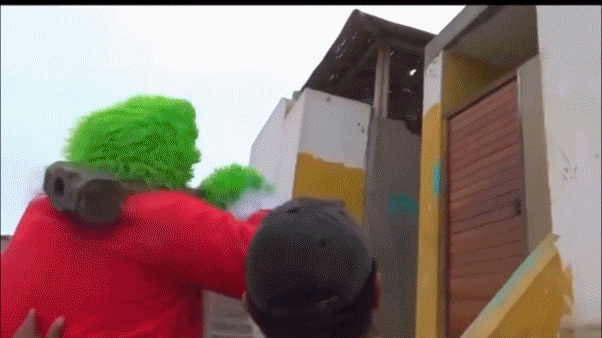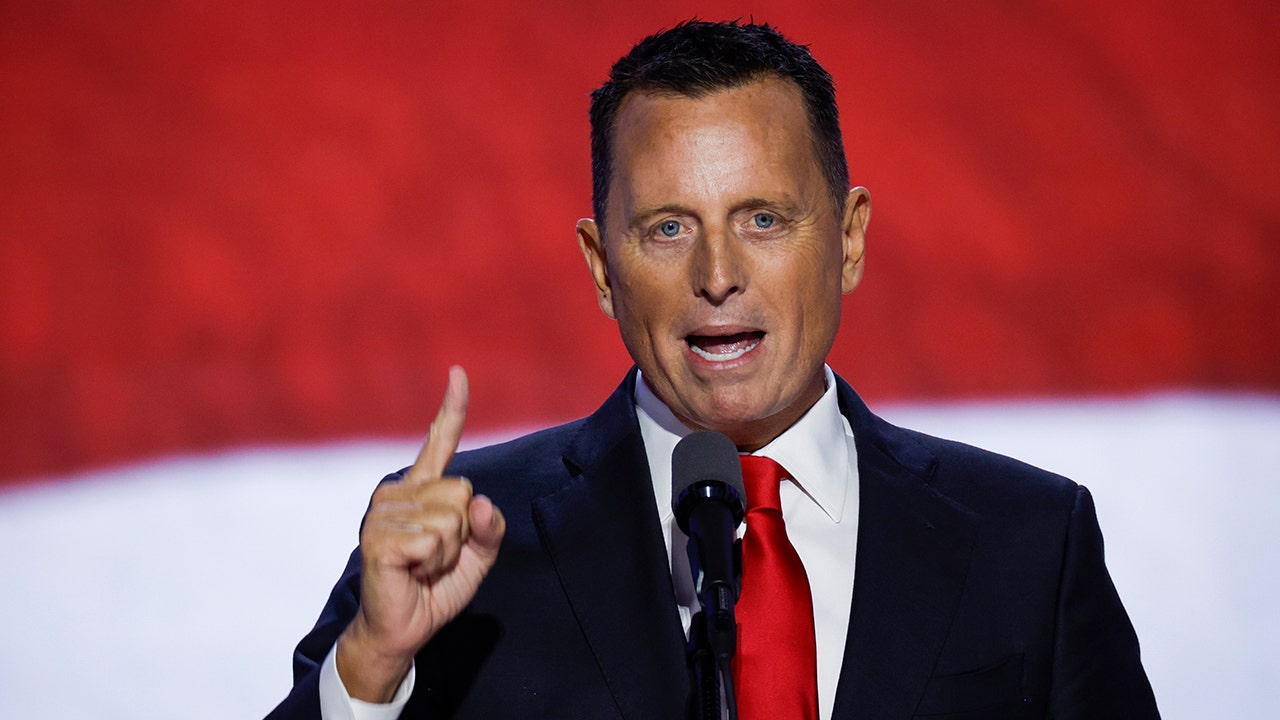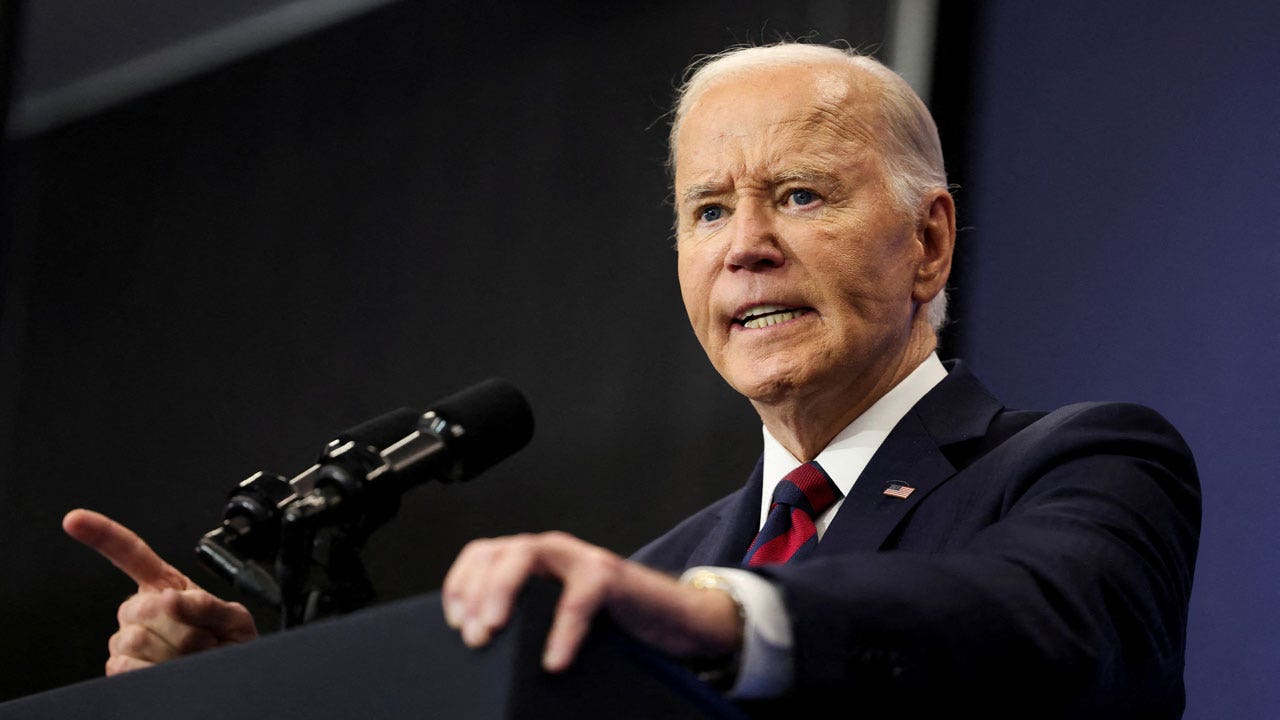World
Pence’s early exit from the presidential campaign offers a reminder of Trump’s grip on the GOP

LAS VEGAS (AP) — Mike Pence has a resume most White House hopefuls would dream of. A congressman. A governor of a big Midwestern state. A one-time vice president.
In normal times, someone with such credentials would be well positioned to win their party’s presidential nomination. But these are not normal times and Pence’s decision to end his campaign more than two months before the first contest in the Republican primary underscores the extent to which the party has been subsumed by former President Donald Trump and his lies about the 2020 election he lost to Democrat Joe Biden.
Pence made his surprise announcement Saturday in Las Vegas, where he and other GOP presidential hopefuls spoke at a summit sponsored by the Republican Jewish Coalition. But in many ways, Pence’s campaign ended years before it officially began, in the days leading up to Jan. 6, 2021. That was when Trump, desperate to hang onto power, became convinced that Pence, as president of the Senate, could somehow reject the election results — a power the then-vice president did not possess.
After spending four years as Trump’s loyal defender, Pence was suddenly cast as a traitor, targeted by rioters who stormed the Capitol, some chanting “Hang Mike Pence!” Angry Trump supporters crossed his name off their “Trump-Pence” yard signs or shoved them deep into the ground to bury his name in the dirt. While the issue became less salient as the campaign went on, Pence was heckled and booed at times.
“From the very beginning, I think his supporters knew that the challenge was going to be some of the hardcore Trump supporters were never going to forgive him for upholding the Constitution on Jan 6.,” said Art Pope, a GOP donor from North Carolina who supported Pence’s campaign. “On the other hand, there were a group of Americans who were never going to forgive him for being in the Trump administration to begin with.”
“He just could not overcome that,” Pope said.
Pence tried to thread what often seemed like an impossibly fine needle. He ran on the record of what he fondly referred to as the Trump-Pence administration while also criticizing his former boss. He accused Trump of abandoning conservative principles on issues such as abortion and of putting himself above the Constitution to stay in power. During his campaign launch event, Pence addressed Jan. 6 head-on, defending his actions and saying Trump disqualified himself during that period.
“Anyone that puts themselves over the Constitution should never be president of the United States, and anyone who asks someone else to put them over the Constitution should never be president of the United States again,” Pence said.
The Wi-Fi password for the media at the event — “KeptHisOath!” — underscored his message, as did the first ad run by a supportive super political action committee, which featured footage from the insurrection, contrasting both men’s actions that day.
Though it was never part of his stump speech, Pence’s approach to Jan. 6 reflected his advisers’ belief that, if he addressed the Capitol attack directly and spent time explaining his position, voters would come to respect his adherence to the Constitution and see it as a point of strength.
“People respect him for upholding his oath under enormous pressure,” Marc Short, a longtime senior adviser, said over the summer.
That never translated into support from conservative primary voters, who in polls and focus groups made clear they preferred other options. An Associated Press-NORC Center for Public Affairs Research from August found 57% of Republicans still believe Biden was illegitimately elected president, while a plurality believed Trump did nothing wrong in the run-up to Jan. 6.
Even at Pence’s opening campaign event, many in attendance said they liked and respected him, but had yet to make a decision.
“We always knew there was going to be a large portion of the electorate that was not going to be with him on Jan. 6, but the only way he could tarnish his career and his legacy and reputation was to be untrue to himself,” said Devin O’Malley, Pence’s longtime spokesman. “Ultimately there was one person who could change how he’ll be perceived through history and that was Mike Pence. And he stayed true to himself and he comes out with his legacy intact.”
Pence spent much of his campaign advocating traditional conservative policies, including more U.S. support for Ukraine, even as those ideas have fallen out of favor in a Republican Party increasingly aligned with Trump’s populist and isolationist leanings.
All the while, Trump only grew stronger, building his support even as he confronted multiple criminal indictments, including one tied to his efforts to overturn the election.
Supporters and those close to Pence, some of whom were granted anonymity to describe the final weeks of his campaign, said they realized the campaign was effectively over around the time of the second debate in September.
Several expected Pence would see a wave of momentum after the first debate, when he delivered an uncharacteristically pointed performance, tangling, in particular, with tech entrepreneur Vivek Ramaswamy. But Pence saw no appreciable bump in the polls or fundraising. By the second debate, he was relegated to the far side of the stage.
Then came a campaign finance report that showed just how dire the situation had become. Pence already racked up more than $600,000 in debt and was burning through nearly as much cash as he was raising, despite an aggressive fundraising schedule.
While Pence staked his campaign on Iowa — where his super PAC had knocked on nearly 600,000 doors — making it to the January caucuses would have required him to go into the kind of debt that might have taken Pence, who is not independently wealthy, years to pay off.A
Aides insisted he would qualify for the third debate if he tried, but his calendar became suspiciously empty. This past week, Pence began dialing top supporters to let them know that he decided to end the campaign.
“He never got much traction,” said Larry Post, a retired money manager from Beverly Hills, California, who was among the Republican donors gathered in Las Vegas.
Pence chose the Republican Jewish Coalition summit — before a friendly crowd that has long appreciated his support for Israel — in part so he could make his case one last time that the U.S. must maintain its leadership role on the world stage to prevent attacks such as the one by Hamas against Israel.
Post blamed Pence for his predicament. “He’s kind of stiff,” Post said. “So I don’t think he had a lot of charisma.” But Post also said Jan. 6 may have played a role in Pence’s struggle to gain momentum as a candidate, “when he decided, you know, to pick a fight with Trump over what was right and what was wrong and what he should do.”
Lawrence Platt, an OB/GYN from Los Angeles who was also attending the meeting of the influential Jewish group, said he was “not shocked but surprised,” when Pence announced he was ending his campaign.
He called Pence “a respectful man,” but said there were other strong candidates in the field beyond Trump.
Pence was only polling in the single digits, so his departure is unlikely to give a major boost to any of his rivals. But former New Jersey Gov. Chris Christie, who has been running as the most vocal Trump critic in the race, said it was a sign the field was finally winnowing — something anti-Trump Republicans have long argued must happen for anyone to have a shot at taking on Trump directly.
“In the end, it just means this race is narrowing as everyone said that it would,” Christie said told CNN’s “State of the Union” on Sunday.
Pope, who said Pence had reached out earlier this past week to let him know he had decided to end his campaign, said that was the right choice.
“If there is not a path to victory then I think it was a prudent thing to withdraw from the race earlier rather than later and let the field consolidate,” he said, voicing belief that Trump can be beaten.
___
Colvin reported from New York.

World
Justin Baldoni Sued by Former Publicist Amid Blake Lively Scandal

Justin Baldoni‘s former publicist sued him, his company and his current publicity team on Tuesday, amid a spiraling scandal over an alleged smear campaign against Baldoni’s “It Ends With Us” co-star Blake Lively.
Steph Jones, who owns Jonesworks, accused Baldoni of breaching their contract, which required him to pay her $25,000 per month. Baldoni dropped the firm in August, a few months into a year-long deal, after his Jonesworks publicist, Jennifer Abel, left the company to start her own publicity firm.
Jones also sued Abel and publicist Melissa Nathan, accusing them of implementing the smear campaign against Lively behind her back and without her knowledge. She alleges that they are now trying to blame her for the ensuing meltdown.
“To this day, Abel and Nathan continue to point the finger falsely at Jones now that their own misconduct is coming to light, and to defame and attack Jones in the industry,” the lawsuit states.
Lively filed a complaint on Saturday with the California Civil Rights Department, accusing Baldoni and his publicists of orchestrating negative coverage about her in retaliation for her complaints of sexual harassment on set.
In the complaint, Lively accused Baldoni of a catalog of sexually inappropriate comments and behavior that allegedly took place on set in 2023. According to the complaint, she raised these issues through her attorneys before filming, which had been suspended during the Hollywood strikes, resumed earlier this year.
The rift between Baldoni and Lively became apparent during the publicity tour for the film last summer. Baldoni feared that Lively or her team would public accuse him of sexual misconduct, and sought ways to combat that. The complaint quoted extensively from text messages among Baldoni’s publicity team, in which they plotted to “bury” Lively.
In an unusual move, Lively’s attorneys obtained the messages by sending a pre-litigation subpoena to Jones.
Abel, Nathan, and Baldoni are represented by attorney Bryan Freedman. On Monday, Freedman threatened to sue Jones for releasing the contents of Abel’s phone to Lively’s legal team. Freedman, Abel and Nathan did not immediately respond to a request for comment on Jones’ suit.
In her lawsuit, Jones relates that she “forensically preserved” Abel’s company phone after Abel was fired.
“Abel and Nathan’s covert take down and smear campaigns were revealed in black and white on Abel’s company-issued phone following her termination, which Jonesworks forensically preserved and examined in detail after receiving a subpoena for the phone’s contents,” Jones’ suit states. “Jones discovered the breadth and intensity of Abel and Nathan’s duplicity from these records, including that Abel was actively encouraging other Jonesworks clients and employees to leave Jonesworks while Abel was still employed there.”
Jones’ suit alleges that Abel conspired for months to leave her company and to “steal” her clients and trash her reputation in the industry. She accuses Nathan of encouraging Abel to leave, because Nathan would then have greater access to those clients.
“This scheme ultimately inflicted serious damage on Jones and Jonesworks,” states the lawsuit, which was filed in state court in New York.
Among other things, the suit alleges that Abel and Nathan planted negative stories about Jones in the press, including an article in Business Insider that was published last summer.
The suit alleges breach of contract, tortious interference with contract, breach of fiduciary duty and defamation.
World
Police officer dressed as the 'Grinch' steals Christmas spirit during drug bust

A Peruvian police officer dressed as the Grinch, the cantankerous and green-furred villain, busted suspected drug traffickers in the South American country’s capital days before Christmas.
The operation in San Bartolo in Lima resulted in the arrest of three suspects, according to a video posted online by the Peruvian National Police.
“In an ingenious operation, agents of the Green Squad arrested the aliases La Reina del Sur, La Coneja and Pote, alleged members of the La Mafia de San Bartolo gang, dedicated to drug dealing,” a police post on X states. “Various narcotics were seized.”
FLORIDA MAN WHO WAS HALF-NAKED, ‘HIGH ON METH’ BREAKS INTO HOME, GRABS CARPET CLEANER
The “Grinch” posing with suspected drug traffickers. A Peruvian police officer dressed as the Christmas villain helped bust the alleged traffickers. (Peru National Police)
Using what appeared to be a sledgehammer, the officer walked down the street dressed as the infamous Christmas villain with a small heart before breaking down the front door of a home and entering, according to the video footage.
The suspects were arrested, and the “Grinch” is seen rummaging through various items in the home before finding what authorities said were illegal drugs and other items related to drug trafficking.
MORE THAN $31M OF METH CONCEALED IN SHIPMENT OF PEPPERS SEIZED AT TEXAS-MEXICO BORDER

A Peruvian police officer dressed as the “Grinch” on his way to bust suspected drug traffickers. (Peru National Police )
Peru is the second-largest producer of cocaine and cultivator of coca in the world, according to the State Department.
“The majority of cocaine produced in Peru is transported to South American countries for domestic consumption, or for onward shipment to Europe, the United States, East Asia, and Mexico,” the State Department website said.
Peru’s national police force has carried out similar operations in the past.

The “Grinch” busting down a door (Peru National Police)
On Halloween 2023, officers disguised as horror favorites Freddy Krueger, Jason Voorhees and Tiffany Valentine, the murderous doll in the “Child’s Play” series, also broke into the home of alleged drug dealers.
World
Are your Christmas gifts ready? Here are where EU toys come from

While the EU saw a drop in toy exports, China was the EU’s biggest supplier, providing 80% of these imports, valued at €5.2 billion.
In 2023, the EU imported €6.5 billion worth of toys from countries outside the bloc, a €2 billion decrease compared to 2022.
According to the latest Eurostat figures, China was the EU’s biggest supplier, providing 80% of these imports, valued at €5.2 billion.
Vietnam followed with 6% and the United Kingdom with 2%.
Around a fifth of the EU’s toy imports ended up in Germany, while France and the Netherlands received 16% and 14%, respectively.
At the same time, the EU exported €2.3 billion worth of toys in 2023.
This figure represents a slight decrease of €0.2 billion from the previous year.
More than half of the toys exported from the EU came from the Czech Republic, Germany and Belgium.
The UK was the top destination for EU toy exports, receiving 30% of the total, followed by Switzerland at 13% and the United States at 10%.
Concerns over toy safety
A recent Toy Industries of Europe study revealed that 80% of toys purchased from third-party sellers on online marketplaces failed to meet EU safety standards.
The research tested over 100 toys from various platforms, uncovering serious health risks such as choking hazards and toxic chemicals.
At the beginning of September, the European Parliament backed a proposal to improve the safety of toys available on the EU market.
The proposal focused particularly on decreasing the number of unsafe toys in the EU market and better protecting children from toy-related risks, including banning harmful chemicals in toys.
-

 Business1 week ago
Business1 week agoFreddie Freeman's World Series walk-off grand slam baseball sells at auction for $1.56 million
-
/cdn.vox-cdn.com/uploads/chorus_asset/file/23951353/STK043_VRG_Illo_N_Barclay_3_Meta.jpg)
/cdn.vox-cdn.com/uploads/chorus_asset/file/23951353/STK043_VRG_Illo_N_Barclay_3_Meta.jpg) Technology1 week ago
Technology1 week agoMeta’s Instagram boss: who posted something matters more in the AI age
-
/cdn.vox-cdn.com/uploads/chorus_asset/file/24924653/236780_Google_AntiTrust_Trial_Custom_Art_CVirginia__0003_1.png)
/cdn.vox-cdn.com/uploads/chorus_asset/file/24924653/236780_Google_AntiTrust_Trial_Custom_Art_CVirginia__0003_1.png) Technology4 days ago
Technology4 days agoGoogle’s counteroffer to the government trying to break it up is unbundling Android apps
-
News1 week ago
East’s wintry mix could make travel dicey. And yes, that was a tornado in Calif.
-

 News5 days ago
News5 days agoNovo Nordisk shares tumble as weight-loss drug trial data disappoints
-

 Politics5 days ago
Politics5 days agoIllegal immigrant sexually abused child in the U.S. after being removed from the country five times
-

 Entertainment5 days ago
Entertainment5 days ago'It's a little holiday gift': Inside the Weeknd's free Santa Monica show for his biggest fans
-

 Politics1 week ago
Politics1 week agoTrump taps Richard Grenell as presidential envoy for special missions, Edward S. Walsh as Ireland ambassador


















